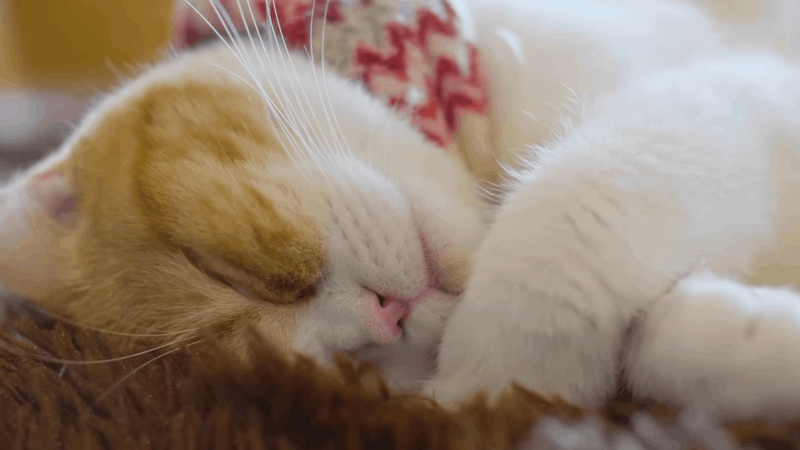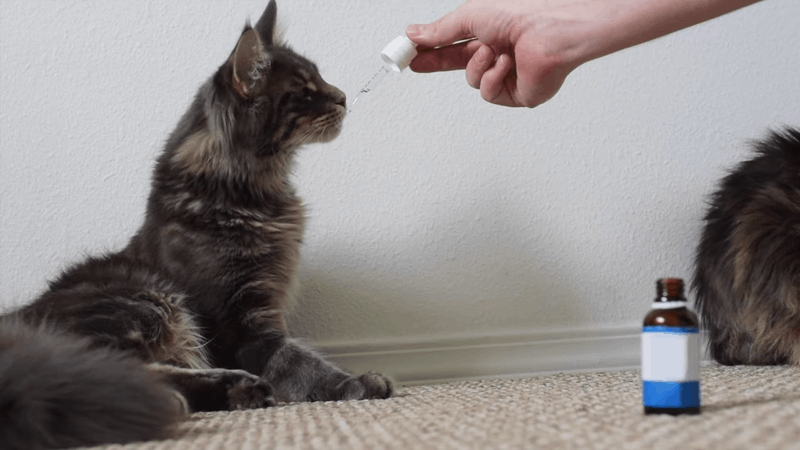No products in the cart.
For pet owners who are looking to provide additional comfort and relief for their feline friends, CBD oil for cats with kidney disease is becoming an increasingly popular natural remedy. Cats with kidney illness often experience pain, inflammation, and appetite loss. This is a prevalent health problem that needs to be recognized soon.
How CBD oil works, its potential benefits, and the reasons why it’s becoming a favored choice for holistic pet care will be explored in this blog.
What is Kidney Disease in Cats?

A frequent ailment in cats, renal disease is characterized by a progressive loss of kidney function over time. Maintaining fluid balance, removing waste from the blood, and managing electrolytes are all dependent on the kidneys. When a cat’s kidneys are no longer able to perform these functions effectively, waste products accumulate in the blood, leading to a range of health issues.
Kidney disease can be acute, which occurs suddenly and is often reversible with prompt treatment, or chronic, which develops gradually and is typically irreversible, requiring long-term management.
Signs of Kidney Disease in Cats
Cat kidney illness can present with a variety of symptoms, but typical ones include:
- Increased thirst and urination: Cats with kidney disease often drink more water and urinate more frequently.
- Loss of appetite: Affected cats may eat less or refuse food.
- Weight loss: Persistent loss of appetite can lead to noticeable weight loss.
- Vomiting: Frequent vomiting can occur as a result of toxin buildup.
- Lethargy: Cats may become more lethargic or less active.
- Poor coat condition: The cat’s fur may appear dull, dry, or unkempt.
- Bad breath: A buildup of toxins can cause a foul odor in the cat’s breath.
- Dehydration: Decreased skin elasticity and dry gums can indicate dehydration.
These symptoms often develop gradually so to manage the disease effectively, early detection through regular veterinary check-ups is so important.
What Causes Kidney Disease in Cats?
The causes of kidney disease in cats can be multifactorial and include:
- Age: Older cats are more susceptible to chronic kidney disease.
- Genetics: Certain breeds, such as Persians and Abyssinians, have a higher predisposition to kidney issues.
- Infections: Bacterial infections like pyelonephritis can damage the kidneys.
- Toxins: Ingesting toxins such as antifreeze, certain medications, or toxic plants can lead to acute kidney failure.
- High blood pressure: Chronic hypertension can damage the kidneys over time.
- Cancer: Renal cell carcinoma and lymphoma can affect kidney function.
- Chronic inflammation: Conditions like glomerulonephritis or interstitial nephritis can cause chronic kidney damage.
- Trauma: Physical injuries can impair kidney function.
Understanding the causes of kidney disease plays an important role of getting an effective treatment and management for your cats.
How Common is Kidney Disease in Cats?

Cats frequently get kidney illnesses, especially senior cats. About 30% of cats over the age of 10 are predicted to get renal illness of some kind. Chronic kidney disease (CKD) is one of the most common ailments affecting senior cats and it is so important to make regular veterinary check-ups for early detection and management.
Can Kidney Disease in Cats Cause Blindness?
Blindness in cats can be caused by kidney disease. This typically occurs due to hypertension (high blood pressure), a common complication of chronic kidney disease. High blood pressure in cats may cause an abrupt loss of vision due to retinal detachment or ocular hemorrhage. To prevent such complications, managing blood pressure through medication and regular monitoring are considered.
Stages of Kidney Disease in Cats
Kidney disease in cats is classified into four stages according to the International Renal Interest Society (IRIS) guidelines. The severity of the disease, particularly the levels of creatinine in the blood, which reflect kidney function, are the basis for this classification.
Stage 1: Early Kidney Disease
- Creatinine levels: Slightly elevated (usually <1.6 mg/dL or 140 µmol/L).
- Symptoms: Often asymptomatic, making early detection challenging without routine screening.
- Diagnosis: Identified through regular blood and urine tests showing mild abnormalities in kidney function.
Stage 2: Mild Kidney Disease
- Creatinine levels: Moderately elevated (1.6-2.8 mg/dL or 140-250 µmol/L).
- Symptoms: Mild clinical signs such as increased thirst and urination, slight weight loss, and reduced appetite.
- Diagnosis: Blood tests reveal moderate elevations in creatinine and other kidney function markers; urine tests show changes in concentration ability.
Stage 3: Moderate Kidney Disease
- Creatinine levels: Significantly elevated (2.9-5.0 mg/dL or 251-440 µmol/L).
- Symptoms: More pronounced clinical signs including noticeable weight loss, poor appetite, vomiting, dehydration, and lethargy.
- Diagnosis: Comprehensive blood and urine tests showing significant kidney impairment; possible ultrasound to assess kidney structure.
Stage 4: Severe Kidney Disease
- Creatinine levels: Severely elevated (>5.0 mg/dL or >440 µmol/L).
- Symptoms: Severe clinical signs such as extreme weight loss, persistent vomiting, severe dehydration, weakness, and lethargy. Poor coat condition and possible oral ulcers.
- Diagnosis: Blood and urine tests confirm severe kidney dysfunction; additional diagnostic imaging may be used to assess kidney damage.
The progression of kidney disease can be managed and the cat’s quality of life can be improved by the regular veterinary check-ups and early intervention.
Can Kidney Disease in Cats Be Treated?

Kidney disease in cats can be treated, though the approach depends on the stage and severity of the disease. Managing symptoms, slowing disease progression, and improving the cat’s quality of life are the features that treatment focuses on. While chronic kidney disease (CKD) is typically progressive and incurable, appropriate management can help control the condition and provide relief for the cat.
How to Treat Kidney Disease in Cats?
The treatment for kidney disease in cats involves several strategies tailored to the stage of the disease:
- Dietary changes: Specialized kidney diets with controlled levels of protein, phosphorus, and sodium can help reduce the workload on the kidneys.
- Hydration: Ensuring adequate hydration through increased water intake or subcutaneous fluid administration helps maintain kidney function and prevent dehydration.
- Medications: Various medications may be prescribed to manage symptoms such as hypertension, anemia, or nausea. Antihypertensives, phosphate binders, and anti-nausea medications can be some of these.
- Monitoring: Regular veterinary check-ups are essential for monitoring kidney function, adjusting treatment plans, and addressing any complications.
Natural Treatment for Kidney Disease in Cats
Natural treatments for kidney disease in cats often focus on supportive care and complementary therapies, including:
- Herbal supplements: Some herbal remedies, such as astragalus or milk thistle, are thought to support kidney health and reduce inflammation. Always consult a veterinarian before using these.
- Dietary supplements: Omega-3 fatty acids may help reduce inflammation and support overall kidney function and they can be found in fish oil.
- Acupuncture: This alternative therapy may provide relief from symptoms and improve the cat’s quality of life by targeting specific points related to kidney health.
CBD Oil for Cats with Kidney Disease
Cat kidney illness is one of the disorders for which CBD oil is being investigated as a potential adjunctive treatment. It may offer benefits such as:
- Pain relief: CBD oil may help manage discomfort associated with kidney disease.
- Anti-inflammatory effects: It may reduce inflammation, potentially benefiting kidney health.
- Improved appetite: CBD oil might help stimulate appetite and reduce nausea.
Before starting any new treatment, please get advice from your vet and it is so essential to use CBD oil specifically formulated for pets. Pet owners can find suitable products on websites like Pet CBD Club, which offer CBD oil formulated for pets. Remember, CBD oil should not replace conventional treatments but can be considered as part of a comprehensive care plan.
Conclusion
CBD oil for cats with kidney disease offers a promising natural solution to help manage pain, inflammation, and appetite loss. The quality of life and the comfort that your cats deserve can be enhanced by incorporating CBD oil into their care routine. To ensure the best approach for your feline friends, getting advice from a veterinarian is so important.
Hello, I am Hazel Bennett, an experienced copywriter specializing in the fascinating topic of CBD for dogs. With a passion for pet wellness and extensive knowledge of CBD’s potential benefits, I am here to provide you with informative and engaging content.



